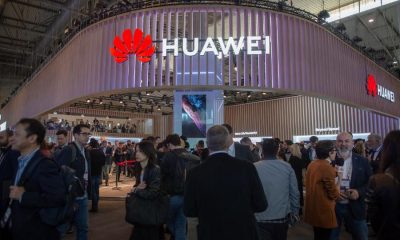Trump-Xi Meeting: US to Lift Ban on High Tech Sales to China’s Huawei? While Keeping Chinese Telecom Companies on a Blacklist

In May, the Trump regime placed China’s tech giant Huawei and its 70 affiliates on its so-called Entity List.
The action shut them out of the US market, along with banning sales of US tech products and components to the companies without Washington’s approval.
The move was unrelated to US national security concerns. It’s all about wanting US telecommunication companies to have a competitive advantage over Huawei.
The Chinese tech giant is leading the race to roll out 5G technology in Western and world markets. At stake are trillions of dollars of economic value, why the company is targeted.
The Trump regime wants China prevented from becoming an economic, industrial, and technological powerhouse on the world stage.
Following talks with Chinese President Xi Jinping on the sidelines of the just concluded G20 summit in Osaka, Japan, Trump suspended the ban on sales of tech products and components to Huawei — while keeping the company and its affiliates blacklisted from doing business in the US market.
Easing the Trump regime’s restrictions on Huawei reportedly was the price Xi demanded for meeting Trump for discussions at the G20.
In remarks to reporters following the summit, Trump said “US companies can sell their equipment to Huawei,” adding: There is no “great national emergency problem.”
“(O)ur companies were very upset” about the ban. Where things stand on Huawei remains very much uncertain, Trump delaying how the company will be treated overall until there’s a deal or no deal with China.
As for de-blacklisting Huawei, its affiliates, and other Chinese tech companies, Trump said
“I don’t want to talk about it now. We will look at it very carefully.”
If talks remain at impasse ahead over unacceptable US demands, how things have gone so far for the past year, toughness against Huawei and other Chinese companies could continue, along with imposing US tariffs up to 25% on all Chinese imports.
Trump added that a Tuesday Commerce Department meeting will decide on whether to take Huawei off the US Entity List.
China’s Foreign Ministry official Wang Zialolong said he has no information on whether the US lifted restrictions on the tech giant, adding:
“We will welcome it if they can do what they have said. Huawei is a private company and its technology is at a pioneering position.”
According to Sino/US analyst Liu Weidong, it’s unclear “under what conditions” Trump will soften his position on Huawei and other Chinese companies.
Clearly he wants something in return, likely unacceptable demands China rejects. Moreover, time and again, he says one thing and does something entirely different.
China has no intention of sacrificing its sovereign rights to US interests — why world’s apart bilateral differences most likely will resurface when talks resume.
Huawei’s CEO Ren Zhengfei said if Google fails to sell its Android operating system to the company, it’ll lose up to 800 million users, a major financial loss for the firm.
Loss of the Chinese market for other US tech companies will be a major blow to their profitability — why suspending the ban on their sales to Huawei and other Chinese companies may stick.
A politically motivated US Justice Department 13-count indictment against Huawei charged the company with wire fraud, money laundering, intellectual property theft, and obstruction of justice.
The action remains a major unresolved bilateral issue.
So is charging its chief financial officer Sabrina Weng Wanzhou with bank fraud, wire fraud, and conspiracy to commit bank and wire fraud, related to allegedly violating (illegal) US sanctions on Iran.
The Trump regime formally requested Canada to extradite her to the US. Currently she’s illegally held under house arrest in Vancouver.
A second 10-count US indictment charges Huawei and its US affiliate with theft of trade secrets from T-Mobile USA, wire fraud, and obstruction of justice – also alleging Huawei “offer(ed) bonuses to employees who succeeded in stealing confidential information from other companies.”
China and Huawei deny US charges. Beijing’s Foreign Ministry accused Washington of using state power to subvert the operations of Chinese companies, notably high-tech ones like Huawei and ZTE – vowing to protect their legitimate rights.
Canadian authorities approved Meng’s extradition to the US, acting on Trump regime orders, her legal team contesting the order.
A legal battle is ongoing for her release. Her status is a major unresolved contentious issue with the US and Canada since her arrest in Vancouver on December 1 last year, Ottawa acting as a Trump regime proxy.
Following her arrest and detention, Trump said he’d intervene for her if China agrees to his demands in talks — showing she’s a political bargaining chip, why action was taken against her, what Beijing considers unacceptable.
In May, her legal team said charges against her are “guided by political considerations and tactics, not by the rule of law.”
Remaining under house arrest, her next court appearance is scheduled on September 23, formal extradition hearings expected to begin in January.
Sino/Canadian relations are at a crossroads over Ottawa’s mistreatment of Meng. Canada is subservient to US interests. It’s Washington’s call on how the issue will be handled. It’s a major Sino/US sticking point.
*
Note to readers: please click the share buttons below. Forward this article to your email lists. Crosspost on your blog site, internet forums. etc.
Award-winning author Stephen Lendman lives in Chicago. He can be reached at [email protected]. He is a Research Associate of the Centre for Research on Globalization (CRG)
His new book as editor and contributor is titled “Flashpoint in Ukraine: US Drive for Hegemony Risks WW III.”
http://www.claritypress.com/LendmanIII.html
Visit his blog site at sjlendman.blogspot.com.

